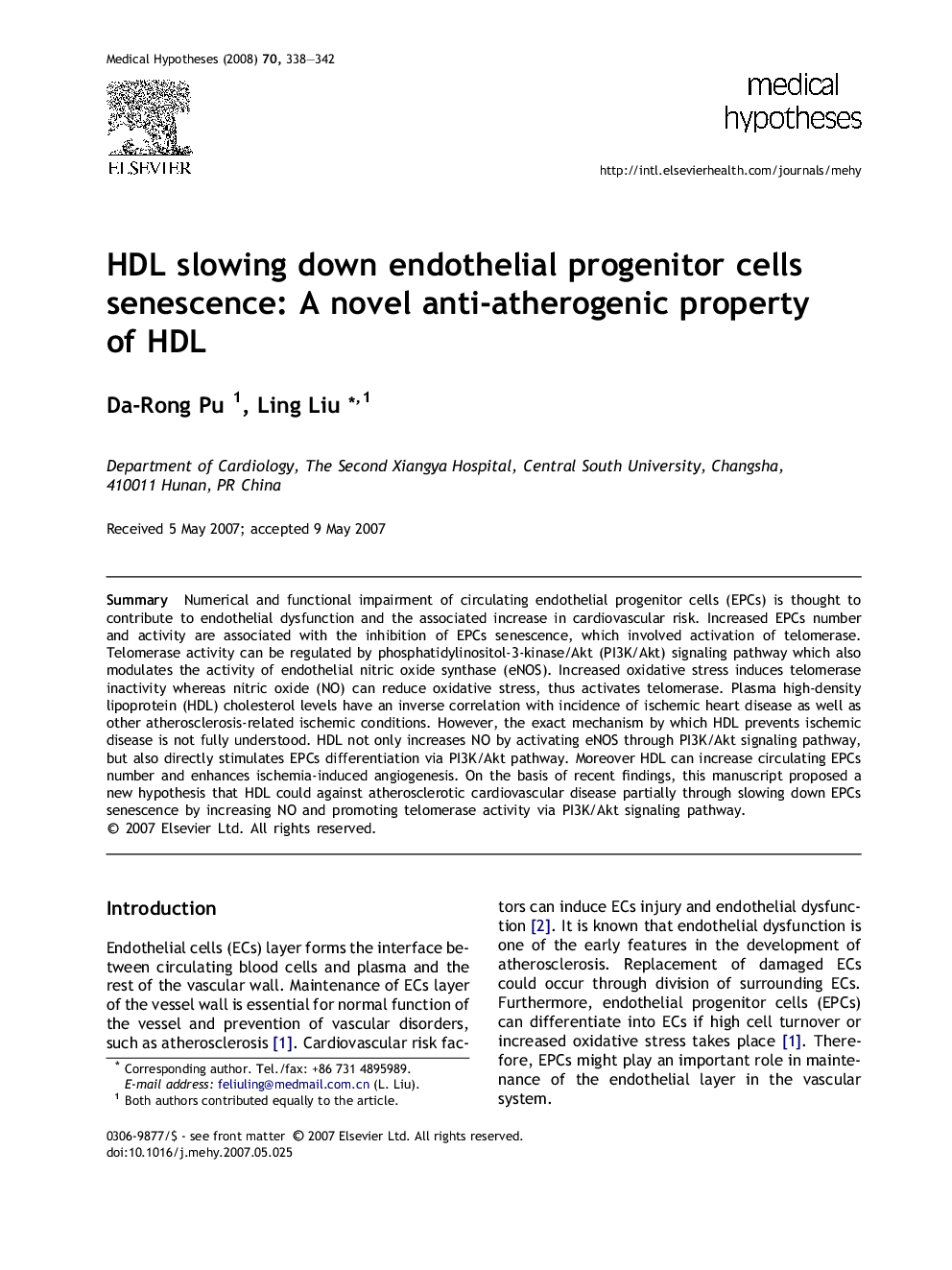| کد مقاله | کد نشریه | سال انتشار | مقاله انگلیسی | نسخه تمام متن |
|---|---|---|---|---|
| 2491914 | 1115095 | 2008 | 5 صفحه PDF | دانلود رایگان |

SummaryNumerical and functional impairment of circulating endothelial progenitor cells (EPCs) is thought to contribute to endothelial dysfunction and the associated increase in cardiovascular risk. Increased EPCs number and activity are associated with the inhibition of EPCs senescence, which involved activation of telomerase. Telomerase activity can be regulated by phosphatidylinositol-3-kinase/Akt (PI3K/Akt) signaling pathway which also modulates the activity of endothelial nitric oxide synthase (eNOS). Increased oxidative stress induces telomerase inactivity whereas nitric oxide (NO) can reduce oxidative stress, thus activates telomerase. Plasma high-density lipoprotein (HDL) cholesterol levels have an inverse correlation with incidence of ischemic heart disease as well as other atherosclerosis-related ischemic conditions. However, the exact mechanism by which HDL prevents ischemic disease is not fully understood. HDL not only increases NO by activating eNOS through PI3K/Akt signaling pathway, but also directly stimulates EPCs differentiation via PI3K/Akt pathway. Moreover HDL can increase circulating EPCs number and enhances ischemia-induced angiogenesis. On the basis of recent findings, this manuscript proposed a new hypothesis that HDL could against atherosclerotic cardiovascular disease partially through slowing down EPCs senescence by increasing NO and promoting telomerase activity via PI3K/Akt signaling pathway.
Journal: Medical Hypotheses - Volume 70, Issue 2, 2008, Pages 338–342